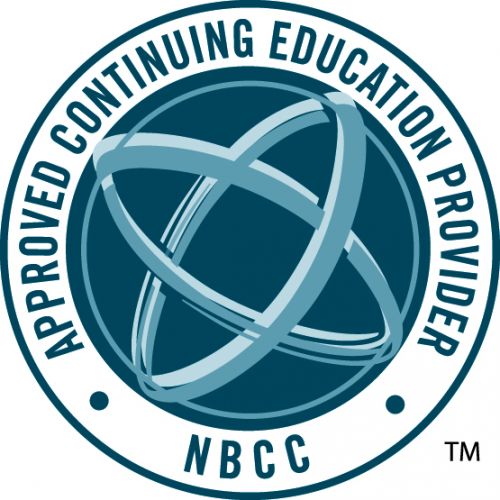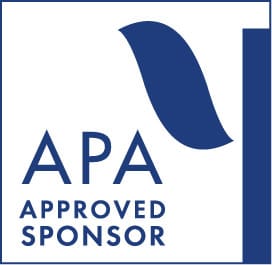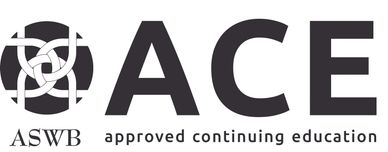- ADHD
- Adults
- Alternative Medicine
- Alzheimers & Aging
- Animal-Assisted Therapy
- Autism
- Behavior Therapy
- Child & Adolescent
- Closeout
- Communication
- Couples-Family-Parenting
- Cultural Diversity
- Depression & Anxiety
- Domestic Violence
- Ethics & Risk Management
- Gender Identity
- HIV-AIDS
- Human Trafficking
- Laws & Rules
- Medical Errors
- Mindfulness & Yoga
- Miscellaneous
- National Psychologist
- Nutrition & Fitness
- Pain Management
- Psychotherapy
- Sexuality
- Substance Abuse
- Suicide
- Supervision
- Trauma & PTSD
Unusual Psychosexual Syndromes, Part 2: Erotomania & Frottage
Louis R. Franzini, PhD
$19.00 Original price was: $19.00.$14.50Current price is: $14.50.
 Intermediate
Intermediate
 Online
Online
Course Abstract
Unusual Psychosexual Syndromes, Part 2: Erotomania & Frottage is a 2-hour online continuing education (CE) course that is part 2 in a series presenting five of the most unusual human sexual behavior disorders. Each syndrome is a relatively rare, yet extraordinarily intriguing pattern of behavior. These men and women have fashioned highly unorthodox means of gratifying their basic needs for love and attention. These syndromes are typically ignored or receive only mere mentions in most abnormal psychology textbooks. Yet, these individuals could very well appear in mental health professionals’ practices as inpatients or outpatients. They all have clear forensic implications as well. Erotomania and frottage are presented with a full description of typical symptoms, relevant case histories, brief theoretical descriptions from the psychodynamic and behavioral perspectives, and the recommended treatments according to the best available current knowledge.
Closeout Course #20-93 | 2014 | 22 pages | 25 posttest questions Related Courses: Unusual Psychosexual Syndromes, Part 1: Koro, Autoerotic Asphyxia, and Necrophilia Unusual Paraphilias Atypical Sexual Behaviors Gender Identity and Transgenderism
Learning Objectives
- Identify the characteristic behaviors of erotomania and de Clerambault syndrome
- List the implications of the “Tarasoff decision” for therapists
- Name helpful strategies a therapist can recommend to patients who are being stalked by erotomanics
- Identify the DSM-5 classification of frotteurs and illustrate the variations of the disorders
- List available treatments and identify arguments for and against the value of treating frottage
Course Directions
This online course provides instant access to the course materials (PDF download) and CE test. The course is text-based (reading) and the CE test is open-book (you can print the test to mark your answers on it while reading the course document).
Successful completion of this course involves passing an online test (80% required, 3 chances to take) and we ask that you also complete a brief course evaluation.
About the Author(s)
Louis R. Franzini, PhD : Find out More
Louis R. Franzini, PhD, received his B.S. degree in Psychology from the University of Pittsburgh, his M.A. degree in Clinical Psychology at the University of Toledo, and his Ph.D. in Clinical Psychology from the University of Pittsburgh. He then completed a Postdoctoral Fellowship in Behavior Modification at the State University of New York at Stony Brook (now Stony Brook University). Following the postdoctoral program Dr. Franzini joined the Psychology Department at San Diego State University, where he spent his entire academic career. He retired as Emeritus Professor of Psychology. His international academic experience included appointments as Distinguished Professor of Psychology at the Universite Catholique de Louvain, Louvain-le-Neuve, Belgium and Senior Fellow in the School of Accountancy and Business, Human Resource and Quality Management Division at Nanyang Technological University, Singapore. Dr. Franzini is licensed as a psychologist in Florida and in California.
Financial: Dr. Franzini receives royalties on his books from John Wiley & Sons, Rowman and Littlefield, Square One Publishers, Sage Publications and from Professional Development Resources on sales of his courses.
Nonfinancial: No relevant nonfinancial relationship exists.
CE Information
Counseling

Professional Development Resources (PDR) has been approved by the National Board for Certified Counselors (NBCC) as an Approved Continuing Education Provider, ACEP No. 5590. Programs that do not qualify for NBCC credit are clearly identified. PDR is solely responsible for all aspects of the programs.
Professional Development Resources is CE Broker compliant (#50-1635 - all courses are reported within two business days of completion). Professional Development Resources, Inc. is recognized by the New York State Education Department’s State Board for Mental Health Practitioners as an approved provider of continuing education for licensed mental health counselors (#MHC-0135 - Note: New York counselors will receive 2 continuing education credits for completing this self-study course).
Marriage and Family Therapy

Professional Development Resources is approved by the American Psychological Association (APA) to sponsor continuing education for psychologists. Professional Development Resources maintains responsibility for this program and its content. Professional Development Resources is also approved by the National Board of Certified Counselors (NBCC ACEP #5590); the Association of Social Work Boards (ASWB #1046, ACE Program); the New York State Education Department's State Board for Mental Health Practitioners as an approved provider of continuing education for licensed marriage and family therapists (#MFT-0100 - Note: New York MFTs will receive 2 continuing education credit(s) for completing this self-study course); the Texas Board of Examiners of Marriage and Family Therapists (#114); and is CE Broker compliant (#50-1635 - all courses are reported within two business days of completion).
Psychology

Professional Development Resources is approved by the American Psychological Association (APA) to sponsor continuing education for psychologists. Professional Development Resources maintains responsibility for this program and its content.
Professional Development Resources is CE Broker compliant (#50-1635 - all courses are reported within two business days of completion). Professional Development Resources, Inc. is recognized by the New York State Education Department’s State Board for Psychology as an approved provider of continuing education for licensed psychologists (#PSY-0145).
Social Work

Professional Development Resources, #1046, is approved as an ACE provider to offer social work continuing education by the Association of Social Work Boards (ASWB) Approved Continuing Education (ACE) program. Regulatory boards are the final authority on courses accepted for continuing education credit. ACE provider approval period: 6/12/2022 - 6/12/2025. Social workers completing this course receive 2 clinical continuing education credits.
Professional Development Resources is CE Broker compliant (#50-1635 - all courses are reported within two business days of completion). Professional Development Resources, Inc. is recognized by the New York State Education Department's State Board for Social Work as an approved provider of continuing education for licensed social workers (#SW-0664 - Note: New York social workers will receive 2 continuing education credit(s) for completing this self-study course). Professional Development Resources is also approved by the Texas State Board of Social Worker Examiners (#5678).
Customer Testimonials
A well designed module on Unusual Psychosexual Syndromes. Test questions highlighted important information, for the most part. Enjoyable experience.
This course was well done. The most applicable part was the stalker information.
Great informative course for a busy professional!
Course was concise and well written with many examples.
Well written & really informative.
More Testimonials
Material is presented an objective, interesting manner with excellent examples/case studies.
Another interesting selection and topic. Well presented.
Very well presented and organized information. Well documented. Thought-provoking. Enjoyable course.
Very helpful information on Unusual Psychosexual Syndromes, particularly regarding Erotomania and the origin of the therapists' duty to warn, the "Tarasoff decision" by the California Supreme court. Thank you for another excellent course!
Very helpful information on Unusual Psychosexual Syndromes, particularly regarding Erotomania and the origin of the therapists' duty to warn, the "Tarasoff decision" by the California Supreme court. Thank you for another excellent course!




